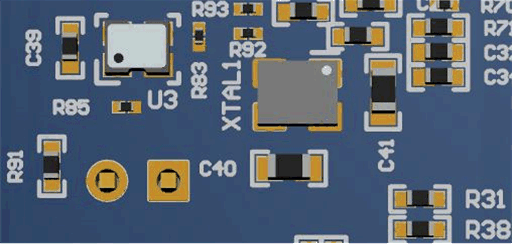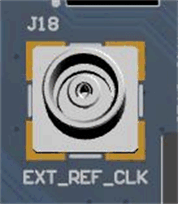SNLU237A September 2018 – January 2024 DP83869HM
- 1
- DP83869EVM
- Trademarks
- 1Definitions
- 2Introduction
- 3Board Setup Details
-
4Configuration Options
- 4.1
Bootstrap Options
- 4.1.1 Straps for PHY Address
- 4.1.2 Strap for DP83869 Functional Mode Selection
- 4.1.3 Straps for RGMII/SGMII to Copper
- 4.1.4 Straps for RGMII to 1000Base-X
- 4.1.5 Straps for RGMII to 100Base-FX
- 4.1.6 Straps for Bridge Mode (SGMII-RGMII)
- 4.1.7 Straps for 100 M Media Converter
- 4.1.8 Straps for 1000 M Media Convertor
- 4.2 SGMII/Fiber Interface
- 4.3 RGMII
- 4.4 Clock Output
- 4.5 Clock Input
- 4.6 Switch Configuration Options
- 4.1
Bootstrap Options
- 5Schematics
- 6Revision History
4.5 Clock Input
The EVM is configured for default crystal input clock operation. The EVM supports the option to provide clock from 25-MHz crystal, 25-MHz CMOS oscillator, and the External clock from the SMB connector. A 50-Ω Coax cable with a SMB connector needs to be used for providing clock input from external sources.
 Figure 4-2 Onboard Clock
Figure 4-2 Onboard Clock Figure 4-3 External Clock Input
Figure 4-3 External Clock Input